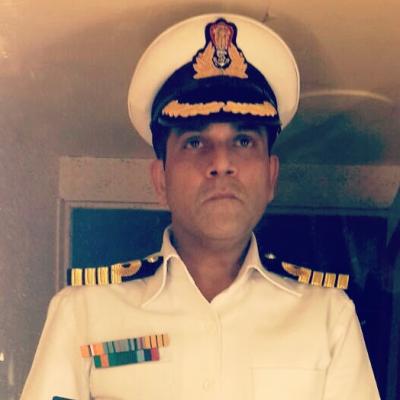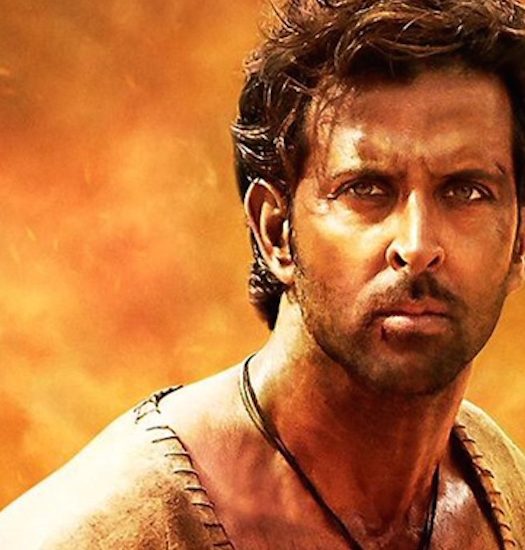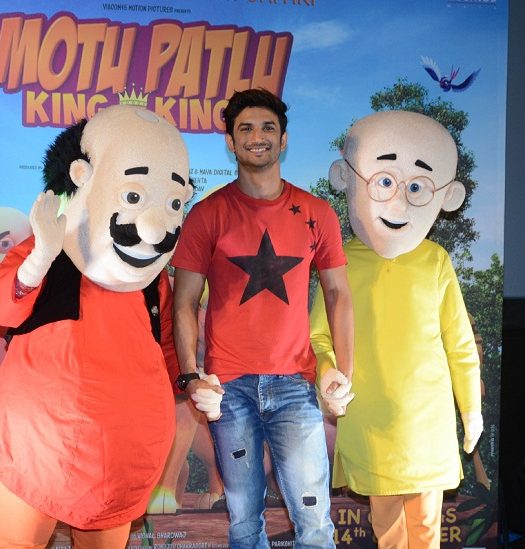Journey from the stage to the big screen: Meet Vansh, Indraneel & Ashu
Three actors who started from theatre and are slowly but steadily making their presence felt in cinema with their consistent performances and unforgettable characters. Pandolin chats up with Vansh Bhardwaj, Indraneel Bhattacharya and Ashu Sharma.
Vansh Bhardwaj
When actor Vansh Bhardwaj bagged his debut film Heaven on Earth (2009), opposite Priety Zinta, it was nothing less than a dream come true. After seeing his play Nagamandla, director Deepa Mehta had told him that some day, she would cast him in her film. Vansh didn’t really expect her to get back, but surprisingly, she did. Ever since, Vansh, who has done his Masters in Theatre from the Department of Indian Theatre, Chandigarh, has been part of films such as Sahi Dhande Galat Bande, Meeruthiya Gangsters, Punjab 1984 and Udta Punjab. Besides films, Vansh continues to regularly pursue theatre with theatre thespian Neelam Mansingh Chowdhary’s ‘The Company’. Bhardwaj who has recently finished shooting for Commando 2 gets into a candid chat with Pandolin.

Actor Vansh Bhardwaj
How has your background in theatre helped your journey into films?
Everything is all because of theatre – right from the confidence to skills or work ethics; I have got everything from it. It has a huge contribution to play in my film career.
READ: There is no rule to become an actor – Jaideep Ahlawat
What do theatre and films mean to you? Is there something that theatre doesn’t provide but films do, and vice versa?
I have always said that for me both theatre and films are the same. I love performing – be it on stage or in front of the camera. I even enjoyed street theatre during my initial days. I’m a performer and I like to perform. But definitely, both the mediums have their own advantages and disadvantages – theatre gives you the experience of live audience and instant reactions, whereas films give you a wider reach and your work gets documented and can be watched again and again. Though one has to keep in mind the technicalities (of each medium), but at the end of the day, you are an actor.
Theatre gives you a platform to explore a lot with your co-actors because you get a lot of time to rehearse whereas in films you have to prepare on your own most of the times. Films are a little difficult to shoot, as you have to prepare the entire graph in your mind, for who knows if you may have to shoot the climax on the first day itself.
Theatre gives you a platform to explore a lot with your co-actors
How difficult was life when you shifted your base from Chandigarh to Mumbai?
The foremost problem is that when you are leaving your base and roots, you feel uprooted in many ways. You have to stay in a place where you hardly know anyone, live in a house that is not yours and have to shift your house after every few months. Punjab is very different from Maharashtra in terms of food, culture, attitude etc. Everything is new to you. A lot of time goes in adjusting to that culture. You don’t even realize where the initial few years go away.

Vansh with theatre director Neelam Mansingh Chowdhary and director Deepa Mehta
In your career as a film and theatre actor, what are the obstacles that you’ve had to face? How did you meet the challenges?
In my journey of seven years, I have done eight films. And I signed the same amount of but they got shelved, which is the most difficult part. After Heaven on Earth, I signed a film featuring John Abraham, which was supposed to be shot in Turkey and Russia. I prepared for five-six months but it got dumped barely ten days before the shoot. I love working in films so I enjoy the journey equally.
READ: You cannot understand acting without being empathetic – Meher VIj
Besides lead roles, you’ve played comparatively smaller but significant roles in certain films. For instance in a film like Udta Punjab, though your role was small, you instantly grabbed attention. How important is the length of the role while determining your choice of films?
Udta Punjab had many characters and even the lead actors such as Shahid (Kapoor), Alia (Bhatt), Kareena (Kapoor Khan) or Diljit (Dosanjh) didn’t have much screen space. It all depends on the director. I think if I perform well in any film, it is all because of the director. And if I perform badly, it will be because of him. At the end of the day, he knows everything as the portrayal of the character is in his hands.
I think if I perform well in any film, it is all because of the director
Tell us more about your upcoming film Anatomy of Violence that will premiere at TIFF in September.
The film is based on the 2012 gangrape and murder of a 23-year-old woman on a Delhi bus. The story is about the lives of six boys and a girl named Janki, who all hail from the same background. Deepa (Mehta, director) ma’am wanted to have a workshop to improvise with the actors for which, Neelam (Mansingh Chowdhary, theatre director) ma’am who was the workshop’s theatre director devised few exercises where she gave us a little background for each of the characters. Her (Deepa ma’am) one liner was that ‘nobody becomes anything in isolation’ – be it a good or a bad human being. Society, family and friends have some or the other role in making us good or bad.
On the basis of that one liner, we would improvise on real locations, as there was no written script. Initially she just wanted to have a workshop. Later as things unfolded, she shot the workshop and using that footage she has turned it into a docu-drama. Deepa ma’am’s idea was not to focus on rapes but on the facts that lead to it. It is a fictional story and improvised on the basis of what we understand about the whole situation.
Indraneel Bhattacharya
Actor Indraneel Bhattacharya who has been in the industry for 18 years now has dabbled in theatre, TV and films. From working in Tinnu Anand’s Major Saab with Amitabh Bachchan to doing professional theatre for over 12 years with stalwarts like Naseeruddin Shah and Salim Ghouse, being part of popular TV shows like Sasural Genda Phool, Ram Milaaye Jodi & Gustakh Dil, to now returning to the big screen with films such as Fan, Jai Gangaajal and Rustom; Indraneel’s journey has been rich and fruitful. The actor shares about his life so far.

Actor Indraneel Bhattacharaya
You have been in the industry for 18 years now. How would you summarize the journey so far?
The journey has been an attempt to scale the summit. Sometimes I’ve slipped, sometimes fallen, been bruised and battered. But picked myself up and started the climb again. Ab shayad manzil door nahin. (Now finally my destination is not very far)
READ: Unraveling the characters of Rustom with Akshay, Ileana & Esha
What are the obstacles that you’ve had to encounter and overcome in your journey spanning TV, films and theatre?
The struggle has been the same irrespective of the medium. If a producer/director is going to invest her or his money, time and faith in you, then he has to be sure of the returns. It’s all about building that faith. I’ve always met these challenges head-on.
The struggle has been the same irrespective of the medium
What role has theatre played in your film journey?
Immensely. Theatre has been the backbone of many great actors. The 12 years that I spent on stage have been my schooling, my foundation. It has always given me an edge over many others.

Indraneel’s look in Rustom
How do you prepare for any role?
The first step in preparing for a role is to keep your mouth shut and listen to everyone who knows the overall picture, particularly your director. After that start thinking, then rehearsing, and finally doing what has to be done. My motto is ‘be intelligent, not intellectual’.
Is there a difference in your approach when you are acting in films versus television?
As I have always said, the medium should be an actor’s last worry. An actor is an actor. For me there is no separate film actor, TV actor or stage actor. I just need to and want to act. Hence my approach is always the same.
The medium should be an actor’s last worry
You had smaller roles in Fan, Jai Gangaajal and Rustom but still managed to shine and get noticed. How does one achieve that?
As I said, I first listen to my directors. Then, sincerely start the process of executing to the best of my abilities. I guess it worked for me even though my parts were not too big.
READ: Entering Mannat to meet Shahrukh Khan was my ‘fan’ moment
What are your upcoming projects?
To be absolutely honest, I am currently waiting in the wings with bated breath for my main stage entry. Once that happens, I will more than ably prove my worth. Yes, there is an A+ list project I’ve tested for. Once that works out, I’ll surely let you all know.
Ashu Sharma
People with great passion can make even the impossible possible. And actor Ashu Sharma is the perfect example of it. Ashu passed out from the Department of Indian Theatre, Chandigarh and made his debut in Teen Patti alongside Amitabh Bachchan. Sharma then started teaching acting, in order to make some money before shifting to Mumbai. During this period, he also trained Varun Sharma (Choocha) of Fukrey fame.
Since then, the actor has been part of No One Killed Jessica, Dev D, Dishoom and the very recent Happy Bhaag Jayegi. Besides being a household name because of his TV shows such as Sasural Simar Ka, Dilli Wali Thakur Girls etc., he continues to actively do theatre. Sharma who has recently shot for Neeraj Pandey’s Missing, talks about his acting dreams.

Actor Ashu Sharma
How did Happy Bhaag Jayegi happen? What was the director’s brief to you?
There was no audition as such. Director Muddasar Ali saw my play ‘Ad Maker’ and cast me for Happy Bhaag Jayegi. He just told me that there should be honesty and simplicity in my mannerism.
READ: A story for the run: The lead cast on Happy Bhaag Jayegi
You have been a prominent face on the TV show Sasural Simar Ka for the past five years. What makes you continue to do TV and simultaneously try your hand at films as well?
Television gives me bread and butter and films give me oxygen. Mumbai is very expensive and you can’t survive if you don’t have anyone from your family here. Now I’m married and have a son; television is the only medium which gives you money to survive if you are staying with your family. In most cases, what happens is that if you are doing TV from a long time, then you get comfortable in that zone only. For instance, you buy a good car and then a house. And the next few years are spent in paying the EMI of those things.
It depends on every actor as to why has he come to Mumbai? – to buy a house and car or do substantial roles and fulfill your passion. The definition of success is different for everyone. One should be clear about their goals. You can easily buy a BMW in Mumbai but you can’t become Nawazuddin Siddiqui or Manoj Bajpayee. I’m not saying that I want to be a Nawazuddin. I just want to be Ashu Sharma. But I moved to Mumbai from Chandigarh to give meaning to my dreams and acting.
Television gives me bread and butter and films give me oxygen
You continue to be part of theatre as well. Has theatre played a key role in your acting journey? How do you prepare for your roles?
I’m an actor only because I’ve done theatre. I still write and do theatre. I once read Naseeruddin Shah sir’s interview where he said that if you really want to be in your character, read your script, your part and the parts of the others as well, every day. I read my script again and again to understand the layers. I rehearse almost 100 times before my shot. And then I finally give my shot.

In a still from Sasural Simar Ka
Since you shifted to Mumbai, have you faced a lot of struggle? Have things changed over time?
I still have to struggle at many levels. And I think that the struggle will always be there. Initially, I was staying in a flat where the rent was 4,500 rupees. Today I’m staying in a 2BHK and paying 40,000 rupees as rent. How should I consider that this is a better stage? When you don’t know anyone in the city and are still surviving, isn’t it a struggling period? But I think one should come to Mumbai, only when you know your craft well. Otherwise, nothing is helpful. I see most new actors working only on their six-pack. But that won’t help. It is only your acting which helps.
I see most new actors working only on their six-pack, but that won’t help
Despite the hurdles, what kept you going?
It is your commitment to yourself. No one pushed me to go to Mumbai. At the end of the day, it was my passion. Somewhere deep within, you know that you are blessed with something. It is just the time factor that matters.
READ: I would act like a coach even when we were off camera – Manoj
You have done six films so far but the duration of the roles hasn’t been long. Does lesser screen space bother you?
After my recent film Dishoom’s first edit, director Rohit Dhawan called me and said that I have done a very good job and no role is small or big. He said that an actor doesn’t get big or small with the duration of the role but it is all about how you do it. He liked my conviction and performance.
Though there is one change that has occurred over the years because of the audience. Viewers nowadays have started giving more importance to character artists. For instance, you may forget R Madhavan but you can’t forget Deepak Dobriyal from Tanu Weds Manu. There are so many other examples. To get the lead role, you need to have that kind of a background. But that doesn’t mean that the actors who do character roles will never manage a lead role. Irrfan Khan had a cameo in Salaam Bombay, Nawazuddin had a small role in Sarfarosh and the same was the case with Manoj Bajpayee who didn’t really play the lead in Satya. Things take time because we don’t belong to anyone from Mumbai. If you just belong to your craft then it does take time.



